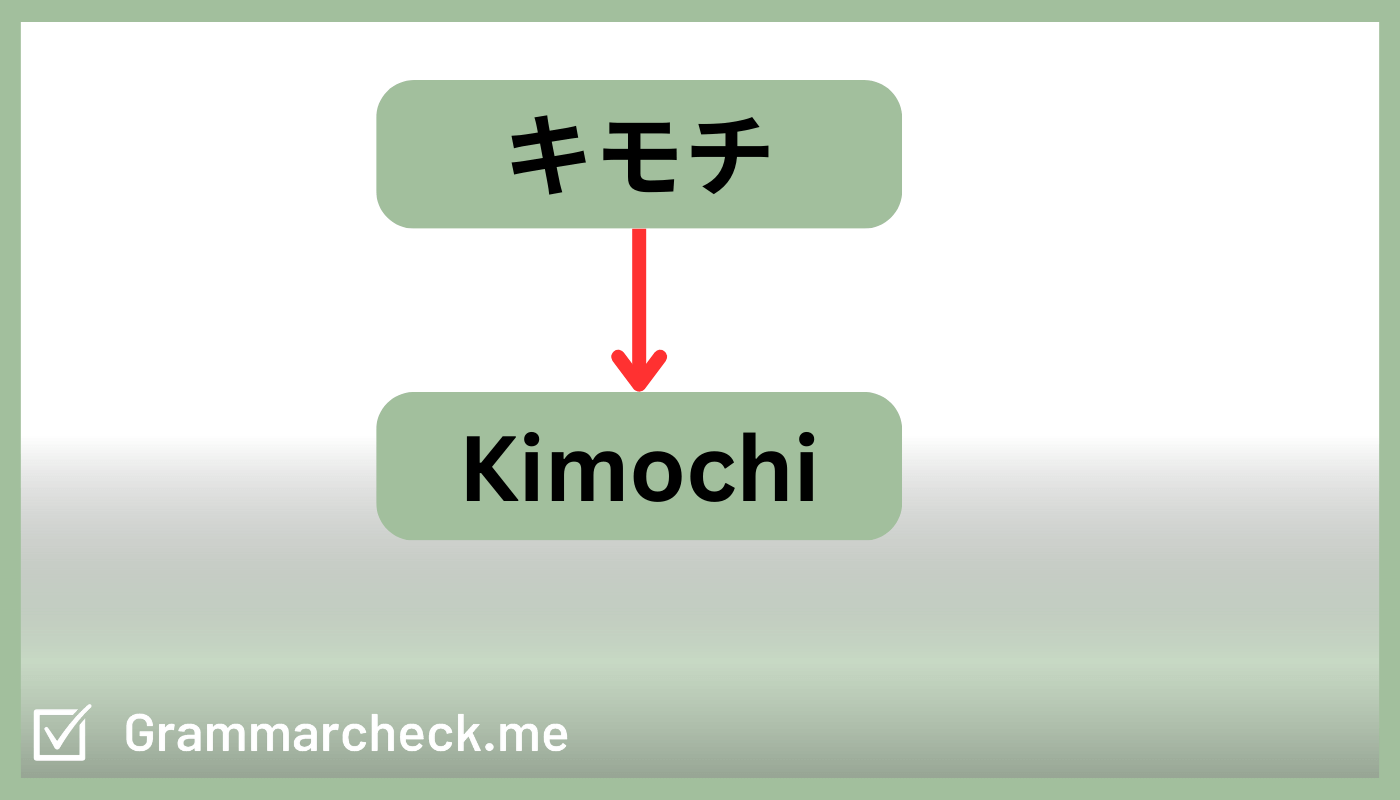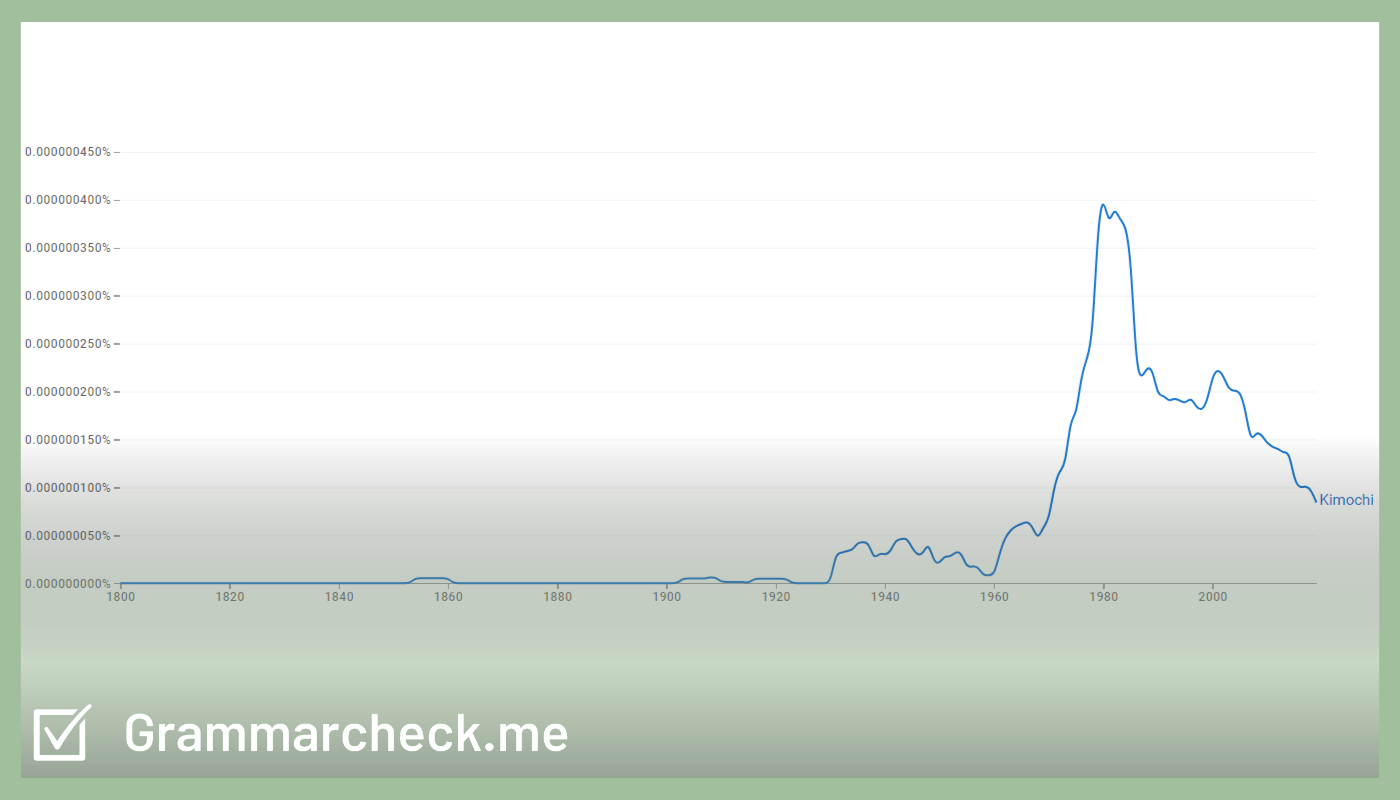The Japanese word kimochi can be literally translated to “feeling”. This state of feeling does not imply a positive or negative sentiment. However, “kimochi ii” is translated to “good feeling” and is used to convey a positive feeling.
The word kimochi originates from the Japanese language. It English speaking countries, the word kimochi is most commonly seen in Japanese media & cartoons.
In this post we’ll explain the meaning of kimochi, how to use it in a sentence, common synonyms, and other popular Japanese sayings.

What Is The Meaning Of Kimochi?
The term “kimochi” means “feeling” or a sense of emotion. Kimochi does not imply good or bad emotions & can encompass a range of feelings (comfort, displeasure, contentment). In the Japanese langauge, “kimochi” is most commonly used to refer to internal emotions one experiences.
Various life experiences can impact the kimochi felt by indivudal people. This word is used to express someone’s current mood or outlook on a particular circumstance. The use cases for “Kimochi” include casual conversations & more intimate exchanges.
What Is The Origin Of Kimochi?
The term “kimochi” is a Japansese word that originates from the Japanese language. The word itself is written as “気持ち” in kanji characters.
- “気” (ki) translates to “spirit” or “feeling,”
- “持ち” (mochi) translates to “hold” or “possess.”
This term has been a part of the Japanese language for many centuries & is deeply embedded in the culture and daily communication. In Japan, the word “kimochi” has historically been utilized to express emotions, sensations, and sentiments. Just like we learned in our post about the Irish phrase “top of the morning“, even foreign sayings can become popular in English speaking countries.
How Do You Use Kimochi In A Sentence?
Here are 5 japanses example sentences that contain the word “kimochi”.
- Kyō no ohirugohan wa oishikatta node, kimochi ga ii desu.)
Translation: “Today’s lunch was delicious, so I feel good.” - Kare no egao o miru to, kokochi yoi kimochi ni narimasu.
Translation: “Seeing his smile makes me feel pleasant.” - Atarashii hon o yomu koto wa, itsumo wakuwaku suru kimochi ni sasete kuremasu.
Translation: “Reading a new book always fills me with excitement.” - Rirakkusu suru ongaku o kiku to, kokochi yoi kimochi ni tsutsumaremasu.
Translation: “Listening to relaxing music envelops me in a comfortable feeling.” - Kanojo no kotoba ni wa itsumo atatakai kimochi ga tsutawatte kimasu.
Translation: “Her words always convey a warm feeling.”
Just like we saw in our analysis of LWK meaning, writers need to pay close attention to the context in which they use certain vocabulary.
What Are Synonyms For Kimochi?
Here are 7 synonyms for the word kimochi in the English language.
- Feeling
- Sensation
- Emotion
- Mood
- Sentiment
- State of mind
- Moodiness
Popularity Analysis
Below is a popularity analysis of the term “kimochi” utiliznig Google’s own N-Gram data. The data shows that this word has declined in popularity since the 1980s. People today use “kimochi” to describe physical feelings and their emotional state. However, just like we saw seen in our analysis of the words Humble & Humility, the popularity of specific vocabulary can change over time. If Japanese culture becomes more popular in English speaking countries in future years, then the use of Kimochi will also become more popular!

Are There Other Popular Japanese Saying In The English Language?
Yes, there are other popular Japanese sayings that are commonly used in the English language. Here is a list of words and phrases that have become popular in American culture.
- Sensei – Translated as “teacher” or “master,” this word is used to address or refer to someone who is an expert in a particular field.
- Sayonara – Meaning “goodbye,” this word is used to bid farewell.
- Kawaii – This term means “cute” or “adorable” and is used to describe something charming and endearing.
- Samurai – Referring to a member of the warrior class in feudal Japan, known for their code of honor and loyalty.
Just like we saw in our analysis of the Italian phrase Cara Mia, foreign sayings can become popular in English speaking countries!
Frequently Asked Questions
The opposite of “kimochi,” which represents positive emotions or good feelings, can be expressed as “kimochi yokunai” in Japanese. This phrase translates to “feels bad” in English.
Yes, there is a slang version of “kimochi,” which is “kimoi.” This slang term carries a different connotation and is used to express something as “gross,” “disgusting,” or “creepy” in Japanese.
The Bottom Line
By now you should have a firm understanding of the Japanese word “kimochi”. Kimochi is used to express a sense of feeling or emotion that one person is experinceing. It does not imply if the feeling is good or bad. The Japanese word kimochi ii refers to a “good feeling”. The Japanese phrase “kimochi yokunai” means “bad feeling”. If you need help with other grammar rules like this, consider using our Tool for Grammar Checking to make things easy.
